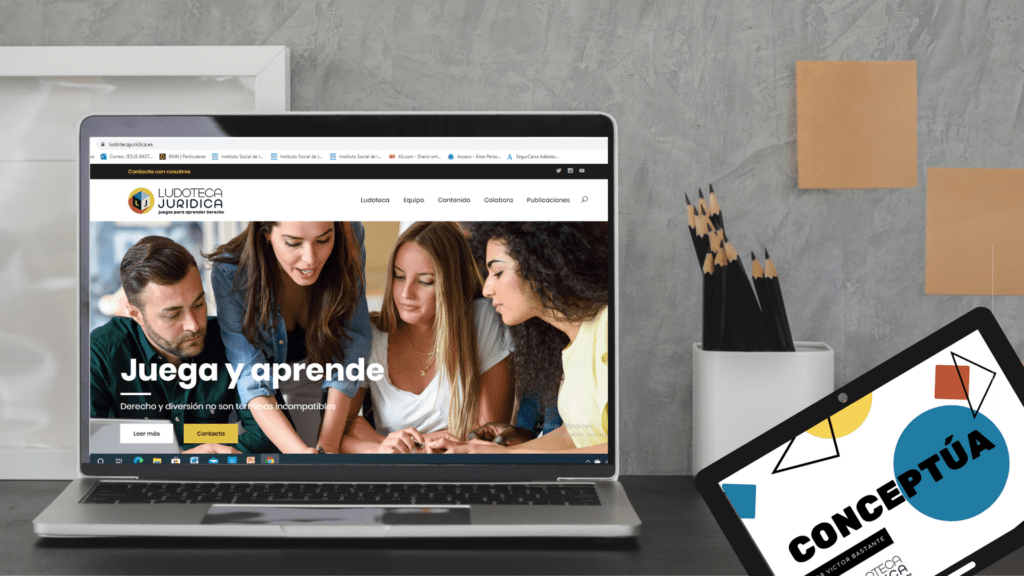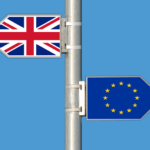The digital platform Ludoteca Jurídica of the University of Almería advocates the compatibility of law and fun.
Background
Teaching law has been —and still is— characterised by a traditional format (master classes, etc.). However, there was a moment when the following question arose: Can law, as a branch of knowledge, be taught through the use of games? The answer was yes. Game-based learning (GBA) or the use of “serious games” were complementary learning methodologies —or mechanisms— capable of facilitating the internalisation of knowledge and skills in the legal sciences. However, the fact that this was possible did not imply any real implementation in university classrooms. It was, therefore, time to promote and disseminate their use in view of their multiple advantages.
It was with this purpose how the digital platform “Ludoteca jurídica” was born, supported by a university project of teaching innovation entitled “Educational Games for Learning Law”. The project, granted in the Call for the Creation of Innovation Groups and Good Teaching Practices (Biennium 2018 and 2019) of the University of Almeria, was coordinated by Prof. Víctor Bastante Granell. This platform —coordinated by various law professors— aims, on the one hand, to promote the use of the techniques and elements of the games in the teaching of legal disciplines; and, on the other hand, to serve as a webspace where teachers can publish and find educational game cards applicable to their law classes within the university environment. Once the teaching experience is completed, teachers can invite students to carry out a satisfaction survey on the educational game developed within the class.
What is the Ludoteca Jurídica?
Currently, the digital platform has —in open and free Access— different game cards, some focused on a specific subject and others of an interdisciplinary nature so that they can be applied in any branch of law. There are individual, group, collaborative, competitive, verbal, cognitive, directed, indoor and outdoor games, etc. Applied correctly, each of these games allows students to acquire different skills and competences in Law, which can be found in each of the cards. This means that their application can benefit our university students. We are not looking for mere fun, but rather to play in order to learn, putting in value the formative character of “gamifying” the classes.
Recently, and following this line of dissemination and the use of “gamification”, another teaching project has started. In this project, called “Inter-University Teaching Innovation on Gamification in Legal Sciences” (Call for the Creation of Innovation and Good Teaching Practices Groups, 2020-2021 biennium) more than 50 teachers from different Spanish universities (Universidad de La Laguna, Córdoba, Málaga, Valencia, Santiago de Compostela, Salamanca, etc.) have come together to create and develop games (of a face-to-face or distance learning nature) in law lessons, starting a kind of “games revolution” in the legal field.
Accordingly, a real university network of “gamifying” teachers has been created. This may give an impetus to the use of this teaching methodology in teaching law, despite the skepticism of some teachers.
Dissemination
Following the launch of the digital platform, the “Ludoteca Jurídica” team has given —and will give— various presentations at teaching innovation events at certain universities (A Coruña, La Laguna, Santiago de Compostela, Valencia, Navarra, etc.) Likewise, professors Víctor Bastante Granell and Lucía Moreno García has published several articles, collected, among others, in the Revista Jurídica de Investigación e Innovación Educativa (REJIE) and Revista on-line de gamificación, ABJ y serious games (Alea Jacta Est), under the titles “Plataforma digital “ludoteca jurídica”: una apuesta por la “gamificación” en Derecho” and “La enseñanza del Derecho a través de los juegos”, respectively. The dissemination work is also carried out through social networks, such as Twitter or Instagram, where information is provided on aspects related to “gamification”, digital resources for teachers, dynamics and activities in university classrooms, amongst others. Thanks to this, teachers from other universities have contacted the platform expressing their interest in collaborating. Furthermore, students have expressed their suitability and enthusiasm for learning law through these recreational and training techniques.
Creativity and motivaion
In conclusion, it should be noted that there are few comprehensive studies on the use of this teaching technique in the field of legal sciences —advantages, disadvantages, forms of establishment, etc. The “Ludoteca Jurídica” was born as an educational experiment, aiming at creating an online environment that encourages “ludification”. Therefore, its application by the teaching staff will determine its possible benefits and/or disadvantages, the arrival of new complementary educational experiences and even its establishment as a common learning technique. However, the most relevant aspect is that it constitutes the “spark” capable of igniting the creativity of teachers, as well as the motivation and attitude of students; and, consequently, a possible innovative teaching formula. We cannot forget that, as Albert Einstein pointed out in a famous phrase, that “play is the highest form of research”. Thus, it may be time to enhance the role of those in charge of gamification.
Connect
⇢ Coordinated by Prof. Víctor Bastante Granell
⇢ Funded by University of Almería
⇢ Project webpage: https://ludotecajuridica.es/







Leave a Reply